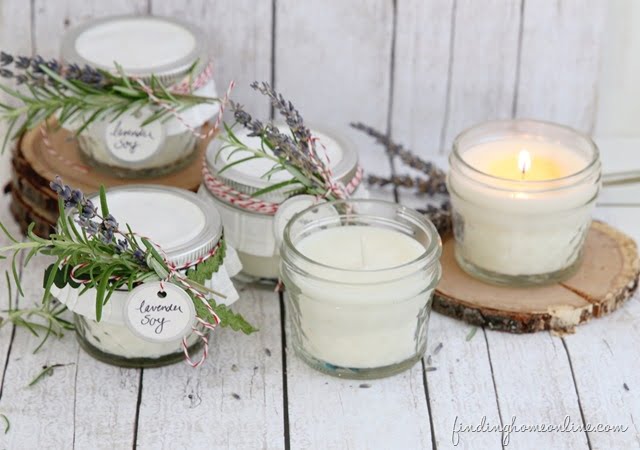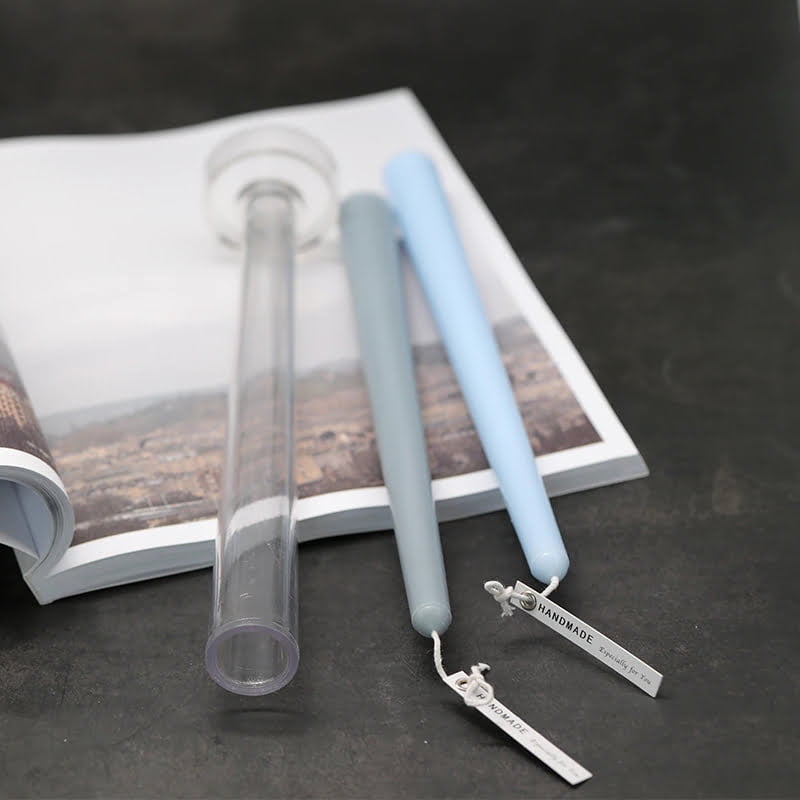Have you ever wondered if fragrance oils can burn out in candles when making them? As a candle maker, it’s important to understand the role of fragrance oils in the candle making process.
Fragrance oils are essential components that add scent to candles and enhance the overall sensory experience. In this article, we will explore the science behind fragrance oils, factors that affect burnout, common misconceptions, signs of burnout, prevention techniques, and tips for extending the lifespan of fragrance oils in candles.
When it comes to candle making, fragrance oils play a crucial role in creating a unique and appealing product. The selection of the right fragrance oil can significantly impact the overall quality and longevity of the scent in your candles. Understanding how these oils interact with candle wax is essential for achieving consistent and long-lasting fragrances.
In this article, we will delve into the science behind how fragrance oils interact with candle wax and explore the various factors that can affect burnout. Factors such as temperature, wick size, and wax composition can all play a role in determining how quickly or slowly fragrance oils burn out in candles.
Additionally, we will debunk common misconceptions about fragrance oil burnout and provide insights into how to recognize signs of burnout in your candles. Stay tuned for expert tips on preventing fragrance oil burnout and maximizing the lifespan of scented candles.
The Science Behind Fragrance Oils
When making scented candles, understanding the science behind fragrance oils and how they interact with candle wax is crucial in achieving the desired results. Fragrance oils are a key component in candle making as they are responsible for the scent that the candle will emit when burned. These oils are specially formulated to be compatible with candle wax and to evaporate slowly when the candle is lit, releasing their pleasant aroma into the surrounding environment.
Chemical Composition of Fragrance Oils
Fragrance oils are typically made up of a mixture of natural and synthetic compounds that are designed to disperse evenly throughout the melted candle wax. These compounds include a blend of essential oils, aroma chemicals, and fixatives that work together to create a long-lasting and consistent scent when the candle is burned. The specific blend of compounds in each fragrance oil can vary depending on the desired scent and intensity.
Interaction With Candle Wax
Can Be an Increased Risk
of poor scent throw or potential burnout.
By gaining insight into how fragrance oils interact with candle wax, candle makers can make informed decisions about which oils to use and how to properly incorporate them into their products to achieve optimal results. Understanding these interactions will ultimately lead to high-quality scented candles that retain their fragrance throughout their lifespan.
Factors Affecting Fragrance Oil Burnout in Candles
When it comes to creating scented candles, the role of fragrance oils is crucial in achieving the desired aroma. However, understanding how fragrance oils interact with candle wax is essential to avoid burnout. The science behind fragrance oils involves their ability to disperse throughout the wax and release their scent when the candle is lit. This process relies on various factors that can impact the effectiveness of the fragrance oil in the candle.
There are several key factors that can affect fragrance oil burnout in candles. These include temperature, wick size, and wax composition. Understanding how each of these elements contributes to the performance of fragrance oils can help candle makers create long-lasting scented candles that maintain their aroma throughout their burn time.
- Temperature: The temperature at which the fragrance oil is added to the wax can impact its ability to disperse and release its scent. Higher temperatures can cause the fragrance oil to evaporate too quickly, leading to burnout.
- Wick Size: The size of the wick used in a candle can also affect how evenly the fragrance oil is dispersed and released. A wick that is too large may cause the candle to burn too hot, leading to premature burnout of the fragrance oil.
- Wax Composition: The type of wax used in a candle can influence how well it holds onto and releases fragrance oils. Some waxes are better suited for retaining scents, while others may allow for quicker burnout.
By carefully considering these factors and making adjustments as needed, candle makers can ensure that their scented candles maintain their aromas for a longer period of time and avoid any potential issues with burnout.
Common Misconceptions About Fragrance Oil Burnout
When it comes to fragrance oils in candle making, there are several misconceptions that can lead to confusion about their burnout. It’s important for candle makers to have a clear understanding of how fragrance oils interact with candle wax and the factors that can affect their longevity. By debunking these myths, you can ensure that your scented candles maintain their fragrance for as long as possible.
Some common misconceptions about fragrance oil burnout in candles include:
- Myth #1: More fragrance oil equals stronger scent
- Myth #2: All fragrance oils perform the same way
- Myth #3: Fragrance oil burnout is solely caused by the quality of the oil
Firstly, it’s important to debunk the myth that adding more fragrance oil to your candle will result in a stronger scent. In reality, adding too much fragrance oil can actually lead to poor performance and even cause the wick to clog, resulting in a weaker scent throw. It’s crucial to follow recommended guidelines for fragrance oil usage provided by reputable suppliers.
Additionally, not all fragrance oils are created equal. Each fragrance oil has its own unique chemical composition that interacts differently with various types of wax. Some oils may require a higher melting point wax, while others may work best with a lower melting point wax. Understanding the specific characteristics of each fragrance oil is essential for achieving optimal scent throw in your candles.
Lastly, while the quality of the fragrance oil does play a role in burnout, it’s not the only factor at play. Other factors such as temperature, wick size, and wax composition can also impact how long the scent lasts in your candles. By considering all these factors and debunking these misconceptions, you can effectively prevent burnout and ensure long-lasting fragrant candles.
Signs of Fragrance Oil Burnout in Candles
When making scented candles using fragrance oils, it’s essential to understand the signs that indicate potential burnout. Without proper attention, fragrance oils can indeed burn out in candles, diminishing the scent and overall quality of the product. To ensure that your candles retain their fragrance for longer periods, it is crucial to recognize the signs of fragrance oil burnout and take necessary steps to prevent it.
Lack of Scent Intensity
One of the most obvious signs of fragrance oil burnout in candles is a decrease in scent intensity. Over time, you may notice that the aroma from your candles becomes less potent or even undetectable.
This can be disappointing for both candle makers and consumers who enjoy the soothing ambiance that scented candles provide. If you find yourself having to bring the candle closer to your nose to detect its scent, it could be an indication that the fragrance oil is burning out.
Incomplete Wax Pool
Another sign that your fragrance oil may be burning out in your candle is an incomplete wax pool during burning. As the candle burns, ideally, a full wax pool should form on the surface of the candle. However, if you notice tunneling or uneven melting patterns where only a small portion of the wax pool forms with each use, it can indicate that the fragrance oil is not evenly evaporating into the air.
Inconsistent Burning Behavior
In some cases, fragrance oil burnout can result in inconsistent burning behavior. This could include irregular flame height, excessive smoking, or soot formation while burning. These issues not only affect the performance of your scented candle but also contribute to faster evaporation of essential oils and fragrances.
Overall, detecting these signs early and taking preventative measures can help prolong the lifespan and effectiveness of fragrance oils in scented candles while ensuring a delightful aromatic experience for users.
Preventing Fragrance Oil Burnout
When making scented candles, it is important to understand that fragrance oils can indeed burn out if not used properly. To prevent this from happening, there are several tips that can help ensure the longevity of the scent in your candles.
One important aspect to consider is the temperature at which you add the fragrance oil to the melted wax. If the wax is too hot, it can cause the fragrance oil to evaporate quickly, leading to burnout. It is recommended to add the fragrance oil when the wax has cooled down slightly but is still in a liquid state. This will allow the oil to disperse evenly and bind with the wax for a longer-lasting scent.
Additionally, choosing the right wick size for your candle can also impact the burnout of fragrance oils. A wick that is too large can cause the candle to burn too hot, resulting in faster evaporation of the fragrance oil. On the other hand, a wick that is too small may not create enough heat to disperse the scent effectively. Finding the right balance in wick size will help maintain a steady and consistent burn for your scented candles.
Furthermore, understanding the composition of your candle wax can also play a role in preventing fragrance oil burnout. Some types of wax may release fragrance more easily than others, so it’s important to select a high-quality wax that can hold and disperse scent effectively. By paying attention to these factors and implementing proper candle making techniques, you can help ensure that your scented candles maintain their fragrant aroma for longer periods.
Extending the Lifespan of Fragrance Oils in Candles
Proper storage and usage of fragrance oils are critical to ensuring that they do not burn out in candles when making them. Fragrance oils can be delicate and susceptible to degradation if not handled correctly. Here are some recommendations for extending the lifespan of fragrance oils in candles:
Firstly, it is essential to store fragrance oils in a cool, dark place. Exposure to heat and light can cause the oils to break down, leading to a loss of scent potency. Additionally, keeping the oils away from direct sunlight can prevent them from becoming discolored or altered in composition.
Secondly, it is important to use the correct amount of fragrance oil in your candle making process. Adding too much oil can result in an overpowering scent that may lead to burnout more quickly. On the other hand, using too little oil can cause the scent to become weak and diminish over time.
Lastly, proper usage of fragrance oils also involves using high-quality materials such as wicks and wax. The type of wax and wick used can affect how well the fragrance oil interacts with the candle, ultimately impacting its longevity. Additionally, factors such as temperature and wick size play a role in how evenly the oil is distributed throughout the candle.
By following these recommendations for storage and usage, you can help ensure that your fragrances oils maintain their potency and do not burn out prematurely when used in candle making.
| Storage Recommendation | Usage Recommendation |
|---|---|
| Store in a cool, dark place | Use the correct amount of oil |
| Avoid exposure to heat and light | Use high-quality materials (wicks/wax) |
| Avoid direct sunlight | Consider factors like temperature and wick size |
Conclusion
In conclusion, the use of fragrance oils in candle making is a delicate art that requires a good understanding of the science behind it. As we have seen, fragrance oils play a crucial role in the overall quality and longevity of scented candles.
However, factors such as temperature, wick size, and wax composition can all affect how well fragrance oils interact with the candle wax. It is important to be mindful of these factors to prevent burnout and ensure that your candles maintain their delightful aroma over time.
Additionally, it is essential to debunk common misconceptions surrounding fragrance oil burnout in candles. While it is true that scent loss can occur due to various reasons, such as improper storage or usage, proper candle making techniques can significantly reduce the risk of burnout. By paying attention to details like proper wick trimming and using high-quality fragrance oils, you can help extend the lifespan of your scented candles.
To further ensure the long-lasting scent of your candles, it is also important to store and use fragrance oils properly. By following recommended storage guidelines and using fragrance oils within their expiry date, you can maximize their effectiveness in candle making.
Ultimately, by incorporating these tips into your candle making process, you can create beautiful candles that retain their delightful aroma for an extended period of time. With a good understanding of the science behind fragrance oils and proper techniques, you can elevate your candle-making experience and enjoy long-lasting scented candles that truly enhance any space they adorn.
Frequently Asked Questions
Are Fragrance Oils Safe for Candle Making?
Fragrance oils are generally safe for candle making as long as they are specifically designed for this purpose. It is important to use fragrance oils that are approved for use in candles and follow the recommended usage rates to ensure safety.
How Long Do Fragrance Oils Last for Candles?
The longevity of fragrance oils in candles can vary depending on factors such as the type of oil used, the quality of the oil, and storage conditions. In general, fragrance oils can last for months to a couple of years if stored properly in a cool, dark place.
What Happens if You Put Too Much Fragrance Oil in a Candle?
Putting too much fragrance oil in a candle can have negative effects on its performance. Excessive amounts of oil can lead to poor burning, smoking, and increased fire risk. It can also cause the scent to become overwhelming or unpleasant, affecting the overall quality of the candle.

Welcome to my candle making blog! In this blog, I will be sharing my tips and tricks for making candles. I will also be sharing some of my favorite recipes.





